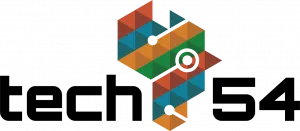Ahead of the Nigerian elections, polling and surveys are getting a lot of attention. People want to know which candidate is leading the polls, while media outlets and intelligence companies seek to measure, identify, and analyse specific geographical trends to give their audience exclusive insights.
A historic shortage of national polling institutions in Africa has prompted the rise of an industry which uses a multitude of sampling techniques to try and survey an often hard-to-reach audience. In this interview, Tech54 talks to Timothy Treagus, CEO of South Africa-based startup Yazi, a market research and polling firm, about the Nigerian elections and the growth prospects for the industry.
Tech54: Are you seeing an increased interest in polling as the Nigerian elections approach?
Timothy Treagus: Yes, Yazi has had several requests regarding polling. We’re finding that businesses are interested in and attracted to Yazi because of our use of WhatsApp as a polling communication channel. Polling is typically done (1) in-person/door-to-door or on the ground, (2) telephonically, (3) digitally using survey apps, or now (4) using SMS or WhatsApp.
Successful polling comes down to the sampling technique used. None of the major US polling companies predicted that Trump would be elected president in 2016. There are many theories as to why this occurred;
incorrectly weighting the sample, nonresponse bias, shy Trumpers (support for Trump was socially undesirable), and many more.
The first key aspect of successfully polling is to poll a sample of people whose distribution of behavioural and demographic attributes mimics that of the voting population.
The second is to ensure that you do not conduct the poll in such a way that biases the participants and causes them to answer in a way that does not reflect their views. Trump’s win in 2016 was evidence of this – many participants polled on the phone were embarrassed about wanting to vote for Trump and so answered Hillary instead. Using WhatsApp or another digital channel enables the participant to keep their identity unknown and gives them a feeling of anonymity, mitigating bias.
As of January 2022, Nigeria had an internet penetration rate of 51.% or 109m internet users. WhatsApp is used by 92% of those mobile or internet users, making it a representative channel for data collection. It is also a lot more cost-effective and takes a fraction of the time to collect the results.
What kind of services do you offer at times of elections?
Yazi offers a package for research that requires highly specific sampling and weightings. We do this by ensuring that we appropriately weigh our sample according to area/location, language, gender, age, income and education. This then ensures that the sample is representative of internet users across Nigeria.
We also help businesses understand the commercial impact of the election results and what participants believe the impact of a candidate winning the election results might be in terms of sentiment (for marketing) and political responses (business risks and forecasting).
The polling and survey software industry is expected to reach $5.7bn globally by 2027. What trends do you identify in the next five years?
There has historically been a lack of market research and economic data for most parts of Africa, except for large cities. The result is a lot of guesswork, with companies often hypothesising and applying existing data from big cities to the national or regional level. Of course, this in itself results in inaccurate insights.
Over the past 20 years, household spending in sub-Saharan Africa has grown 150% faster than the population. Landry Signé at the Brookings Institution forecasts that total household consumption in Africa will reach $2.1 trillion by 2025 and $2.5 trillion by 2030.
As a result, there is considerably more interest from international businesses to expand into Africa, and with that, conduct market research. The growth of the mobile and internet sectors is also expected to drive the demand for polling and survey software in Africa.
However, most digital survey tools and market research platforms in the West require respondents to download apps and use 5-15 MB of data to participate in the research.
In Africa, this is an issue as many people have a shortage of phone storage and use mobile data sparingly. That is why more localised solutions are needed. Companies like Viamo (zero-rated phone calls), Moya (data-free mobile app in South Africa) and Yazi (WhatsApp surveys) are building solutions that cater better to the African consumer.
In terms of development trends, there is likely to be an increased emphasis on event-based survey solutions and mobile-friendly interfaces, as well as the integration of AI and machine learning technologies to analyse data and provide insights.
Additionally, there may also be a growing demand for privacy and security features in polling and survey software, as concerns around data privacy and security continue to rise.

To keep up with the latest in African tech, subscribe to Tech54
This article originally appeared in Tech54, the African Business newsletter that takes an incisive look at the continent’s tech scene. Subscribe to the newsletter here.
Want to continue reading? Subscribe today.
You've read all your free articles for this month! Subscribe now to enjoy full access to our content.
Digital Monthly
£8.00 / month
Receive full unlimited access to our articles, opinions, podcasts and more.
Digital Yearly
£70.00 / year
Our best value offer - save £26 and gain access to all of our digital content for an entire year!
 Sign in with Google
Sign in with Google 



